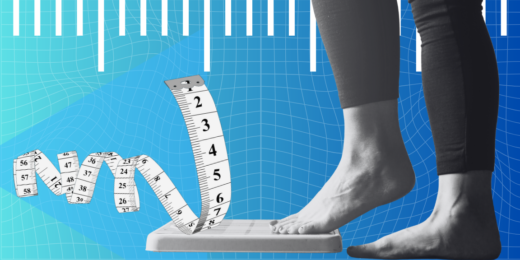While I was working on a story about the research of Stanford Health Policy's Maya Rossin-Slater, PhD -- which found that paid family leave for up to one year appears to have profound long-term health benefits for both mother and child -- I thought of my own experience.
I had my first and only baby in Kuala Lumpur, capital of the Southeast Asian country Malaysia, which has spectacular health care. We had moved there from Africa, where I was a foreign correspondent for The Associated Press.
I was treated like a queen at the hospital. My C-section went off beautifully and post-delivery care included a nurse who spent an hour with me for five straight days, teaching me how to breastfeed, change nappies and swaddle my little girl while I recovered from surgery.
The bill was about a tenth of what would have been spent back home in the States -- my American insurance company was thrilled, paid promptly and with no questions asked. I then had four exhausting but wondrous months of paid maternal leave.
Just when I felt like I was getting the hang of being a new mom, bonding with my little one and not panicking every time she cried, it was time to get back to work. I was the primary breadwinner for our little family of three and I had used up my company's three-month maternity leave and all my accrued vacation time.
I cried all the way to the office that first morning. My breast pump was frowned upon in the women's bathroom in the national press building, and because I could not pump often enough my milk began to wane. I had already had malaria during my pregnancy and now fretted that my daughter would develop serious allergies due to my lack of nursing.
I was certain Caitlin knew I was neglecting her and surely must love her daddy more than me.
So when I read Rossin-Slater's policy brief published last week in Health Affairs that points to the connection between family leave and health, the findings made perfect sense to me.
The United States is the only country in the 35-member Organization for Economic Cooperation and Development that offers no paid leave to new mothers. The U.S. also has relatively poor infant health ratings, particularly for preterm births and infant mortality.
I asked Rossin-Slater why the U.S. is so different than other developed nations.
"There's opposition from business interests arguing that any type of mandate on employers imposes too large costs, especially for small businesses," said Rossin-Slater, an assistant professor of health research and policy at Stanford Medicine. "There's not much empirical evidence supporting this argument, but I think the strong political opposition from business supporters may be a central reason for a lack of action on the federal level."
Rossin-Slater lays out the evidence that suggests the introduction of paid family leave for up to one year in duration may yield significant child and maternal health benefits, both in the short and long term. Her co-author on the brief is Lindsey Uniat, a predoctoral research fellow at the Stanford Institute for Economic Policy Research.
"Existing research suggests that when leave is paid, take-up rates are higher among low-income and disadvantaged families than when it is unpaid, which enables more families to benefit," they wrote.
Some of the short- and long-term health benefits include decreased incidence of low birthweight and preterm births, increased breastfeeding, reduced rates of hospitalizations among infants and improved maternal health.
The authors believe paid family leave may affect population health through multiple mechanisms:
- Children of parents who take leave may receive more parental care, breastfeeding and immunizations if parents are able to stay home longer after birth;
- Child health may improve from the extra resources that parents get from paid family leave benefits, such as more nutritious food;
- Infant and long-term health outcomes may improve if paid family leave access lowers maternal stress during pregnancy, perhaps due to increased financial and job security;
- Taking time off from work without the financial strain may improve the parental bond with the infant -- leading to long-term health benefits for the child.
Finally, existing research indicates that paid family leave may benefit the labor market by leading to fewer high-school dropouts, therefore increasing children's future wages.
I know that leave was important for me. My daughter Caitlin is healthy, graduating from college next month and insists that when she has her first child, she will take off a year.
Photo courtesy of Beth Duff-Brown




